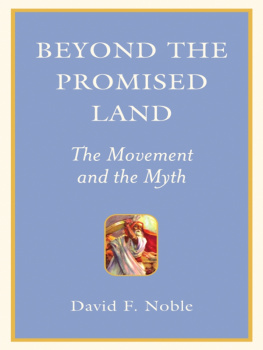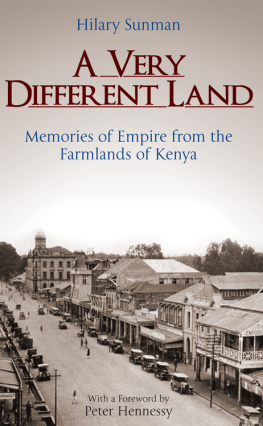
Epistemologies of Healing
General Editors: David Parkin and Elisabeth Hsu, University of Oxford
This series in medical anthropology will publish monographs and collected essays on indigenous (so-called traditional) medical knowledge and practice, alternative and complementary medicine, and ethnobiological studies that relate to health and illness. The emphasis of the series is on the way indigenous epistemologies inform healing, against a background of comparison with other practices, and in recognition of the fluidity between them.
Volume 1
Conjuring Hope: Magic and Healing in Contemporary Russia
Galina Lindquist
Volume 2
Precious Pills: Medicine and Social Change among Tibetan Refugees in India
Audrey Prost
Volume 3
Working with Spirit: Experiencing Izangoma Healing in Contemporary South Africa
Jo Thobeka Wreford
Volume 4
Dances with Spiders: Crisis, Celebrity and Celebration in Southern Italy
Karen Ldtke
Volume 5
The Land Is Dying: Contingency, Creativity and Conflict in Western Kenya
P. Wenzel Geissler and Ruth J. Prince
Volume 6
Plants, Health and Healing: On the Interface of Ethnobotany and Medical Anthropology
Edited by Elisabeth Hsu and Stephen Harris
Volume 7
Morality, Hope and Grief: Anthropologies of AIDS in Africa
Edited by Hansjrg Dilger and Ute Luig
Volume 8
Folk Healing and Health Care Practices in Britain and Ireland: Stethoscopes, Wands or Crystals
Edited by Ronnie Moore and Stuart McClean
Volume 9
Moral Power: The Magic of Witchcraft
Koen Stroeken
Volume 10
Medicine Between Science and Religion: Explorations on Tibetan Grounds
Edited by Vincanne Adams, Mona Schrempf, and Sienna R. Craig
Volume 11
Fortune and the Cursed: The Sliding Scale of Time in Mongolian Divination
Katherine Swancutt
Volume 12
Manufacturing Tibetan Medicine: The Creation of an Industry and the Moral Economy of Tibetanness
Martin Saxer
The Land is Dying
Contingency, Creativity and Conflict in Western Kenya
Paul Wenzel Geissler and Ruth Jane Prince
First published in 2010 by
Berghahn Books
www.berghahnbooks.com
2010, 2013 Paul Wenzel Geissler and Ruth Jane Prince
First paperback edition published in 2013
All rights reserved. Except for the quotation of short passages for the purposes of criticism and review, no part of this book may be reproduced in any form or by any means, electronic or mechanical, including photocopying, recording, or any information storage and retrieval system now known or to be invented, without written permission of the publisher.
Library of Congress Cataloging-in-Publication Data
Geissler, Paul Wenzel.
The land is dying : contingency, creativity and conflict in western Kenya / Paul Wenzel Geissler and Ruth Jane Prince.
p. cm. -- (Epistemologies of healing)
Includes bibliographical references and index.
ISBN 9781-84545-481-4 (hbk.)--ISBN 978-0-85745-793-6 (pbk.)
1. Luo (Kenyan and Tanzanian people)--Medicine--Kenya--Bondo District. 2. Luo (Kenyan and Tanzanian people)--Diseases--Kenya--Bondo District. 3. Luo (Kenyan and Tanzanian people)--Health and hygiene--Kenya--Bondo District. 4. Medical anthropology--Kenya--Bondo District. 5. Traditional medicine--Kenya--Bondo District. 6. AIDS (Disease)--Social aspects--Kenya--Bondo District. 7. HIV infections--Social aspects--Kenya--Bondo District. 8. Bondo District (Kenya)--Social life and customs. I. Prince, Ruth Jane. II. Title.
DT433.545.L85G44 2010
305.896'5--dc22
2009051224
British Library Cataloguing in Publication Data
A catalogue record for this book is available from the British Library Printed in the United States on acid-free paper
ISBN 978-0-85745-793-6 (paperback) ISBN 978-0-85745-826-1 (retail ebook)
In memory of Ida (29 August 20043 August 2006)
List of Figures
house; the decaying house of a deceased person.
Acknowledgements
The years since we began this fieldwork have been most beautiful and most challenging for us, and, rather than ending our acknowledgements with them, we want to begin with expressing our gratitude to our children Otto Ogutu, Ida Apiyo and Anton Odongo. We dedicate this book to the memory of our daughter Ida, Otto's sister and Anton's twin, who left us after giving us almost two years of great happiness.
We are grateful to JoUhero and people in Yimbo and elsewhere in western Kenya for their hospitality and patience, which we hope they will extend to the shortcomings of this account. Their struggles to be together in very different forms have taught us much more than a book can contain. In particular, we are indebted to the many members of our two host families in Uhero, who welcomed us into their homes and shared much of their lives with us. We hope that our friendships will continue to grow. Since we finished our fieldwork, some of the young people in these families have died: Old Mary, Okoth's mother, was preceded in death by her adult grandchildren, Tom's wife and Fanuel, and Mercy Ogumba lost her sons Winston and Odhiambo. We shall remember the time that we shared with them and many other JoUhero who have since died. If, during our fieldwork, the shadow of the death of today was outweighed by our encounters with the living, it has grown darker over the time in which we wrote this book.
Philister Adhiambo Madiega, Reenish Achieng Mbuge, Emmah Odundo, Philip Gem and the late Collins Omondi, Collins Okoth and Willis Ochieng worked as research assistants and became teachers and friends. Achieng generously allowed us to draw on her life in a chapter of this book; Philister has been a source of continuous encouragement and inspiration through the past twelve years. Not only did MinRose (Jane Mayiega) care for our firstborn son, Otto, but our conversations and shared laughter shaped our work and life in Uhero. We remember with affection Omondi, Okoth and Ochieng, as well as neighbours and friends from Uhero who have passed away: BabaFrancis and Francis, Alois, Alfred, MinAnna, Rose, Flora, Grace, Damiano, Philgonia, George, Oruko, Solomon and old Mary.
Friends and colleagues elsewhere in Kenya made our stay in western Kenya rewarding and sociable. The staff of the Division of Vector-Borne Diseases and the Kenyan-Danish Health Project in Kisumu supported us far beyond what we could have expected. We wish to thank especially Professor John H. Ouma and the late Dr Alfred Luoba and their families, Mrs Grace Obara and Mrs Anna Okutoi. Thanks also to our hosts at the University of Nairobi Institute of African Studies, especially Professor Colette Suda and Dr Isaak Nyamongo, and to Professor Paul Lane, then director of the British Institute in East Africa.
In England and Denmark we thank especially Dr Kate Nokes from the Department of Zoology, Oxford University, and the staff of the Danish Bilharziasis Laboratory (DBL) and the Institute of Anthropology in Copenhagen, particularly Dr Jens Aagard-Hansen, Ms Grethe Gtsche and Mr Jrgen Pedersen. Special thanks for stylistic advice and the preparation of the manuscript go to Ms Linda Amarfio of the London School of Hygiene and Tropical Medicine. The studies that fed into this book were funded by grants from the Danish Council for Development Research, the Danish Bilharziasis Laboratory, the Partnership for Child Development, Oxford, the Rivers and Smuts Funds, Cambridge, and the Wenner-Gren Foundation, for which we are grateful. Preparation of the final manuscript was supported by the Norwegian Research Council.





